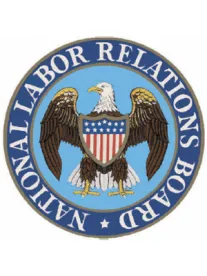In a decision issued this week in M.V. Transportation, the National Labor Relations Board has finally recognized the wisdom of the guidance from the appellate courts, and adopted the “contract coverage” framework for assessing employer unilateral action during the term of a collective bargaining agreement.
For decades, the NLRB (under both Republican and Democratic administrations) stubbornly adhered to the doctrine of “waiver” to assess whether an employer’s unilateral action violated its duty to bargain with a union during the term of a collective bargaining agreement.
This doctrine had been repeatedly rejected by multiple federal appellate courts, which instead used the more common sense “covered by contract” analysis to determine whether or not the employer’s actions were, in fact, “covered by” existing contract language.
Under the “covered by contract” or “contract coverage” standard, the Board will examine the plain language of the parties’ collective-bargaining agreement to determine whether the change made by the employer was within the scope of contractual language granting the employer the right to act unilaterally. If it was, the Board will honor the plain terms of the parties’ agreement and the employer will not have violated the National Labor Relations Act by making the change without bargaining. If the agreement does not cover the employer’s disputed action, the employer will have violated the NLRA unless it demonstrates that the union waived its right to bargain over the change or that it was privileged to act unilaterally for some other reason.
The difference in this framework is significant. Under the “waiver” framework, an employer was required to offer evidence that the union had “clearly and unmistakably” waived its right to bargain over the subject in question. This doctrine created a morass for both employers and unions, because while many unions are willing to cede certain managerial decisions under a broad management rights clause, it is virtually impossible for the parties at the bargaining table to anticipate every possible management decision that could be covered by that management rights clause. The end result was that employers (and unions) were forced to negotiate management rights clauses that only lawyers would love – consisting of multiple clauses enumerating as many (as possible) discrete decisions that might arise under the parties’ agreement.
Even with that level of specificity, the NLRB could still find that the union had not waived its right to bargain over a particular decision. For example, in one case, the management rights clause gave the company the right to “adopt and enforce rules and regulations [and] to set standards of performance”, yet the NLRB concluded the Union had not waived its right to bargain over changes to work rules, the attendance policy and progressive discipline policy. Thus, the waiver doctrine inevitably created longer bargaining sessions and more complex management rights clauses. It also led to additional litigation by opening up an avenue for unions to claim the existing contract language was not specific enough to reflect a union “waiver” of bargaining.
Our takeaway from the M.V. Transportation decision is that despite criticism from the dissent, the more common sense “covered by contract” framework should actually promote collective bargaining rather than litigation. The parties can negotiate and use common sense and more general language in management rights clauses (or other clauses confirming the right of management to act unilaterally) rather than wordsmithing the minutiae of such clauses. This, in turn, will eliminate the excessive time devoted to negotiating management rights clauses and the litigation such clauses sometimes engender. In addition, the Board’s new doctrine will likely enhance traditional contract interpretation principles, including the parties relying on their own negotiated grievance-arbitration process rather than turning to the NLRB for what is truly a contract interpretation dispute.




 />i
/>i

